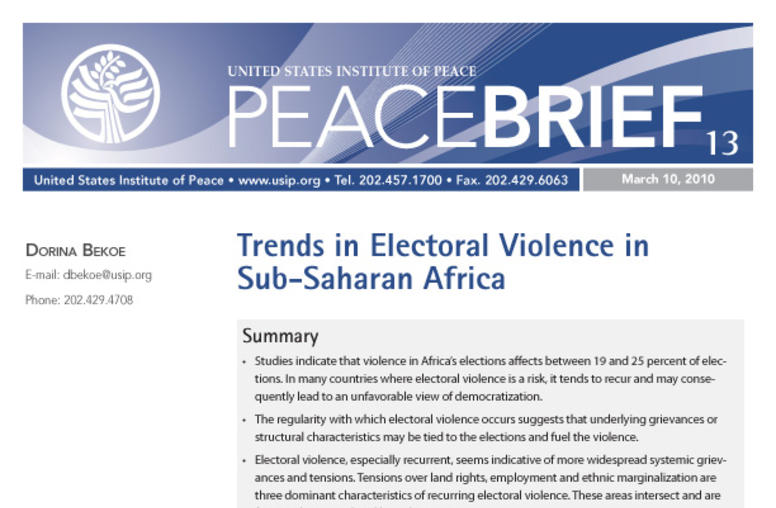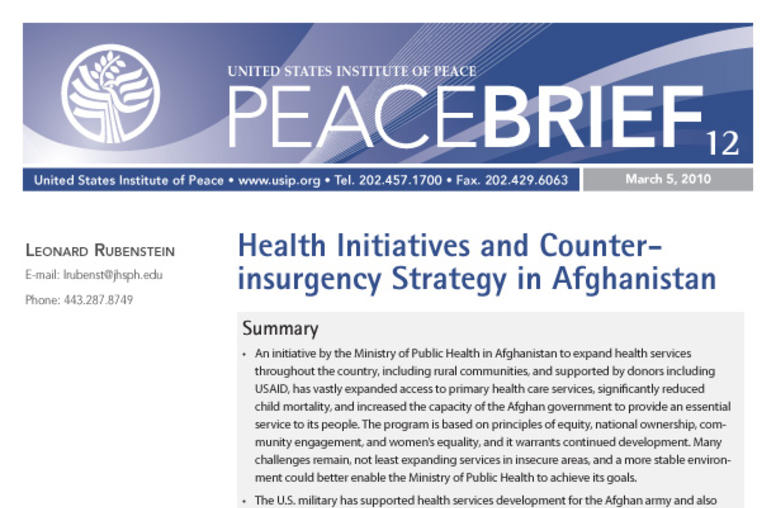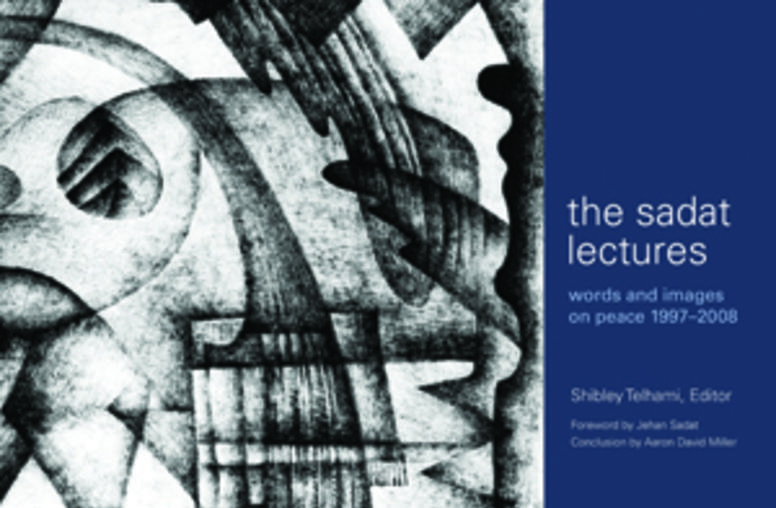Question And Answer
Publications
Articles, publications, books, tools and multimedia features from the U.S. Institute of Peace provide the latest news, analysis, research findings, practitioner guides and reports, all related to the conflict zones and issues that are at the center of the Institute’s work to prevent and reduce violent conflict.
On the Issues: Iraq Elections
USIP’s Manal Omar discusses the latest on the Iraq elections, and what they suggest about Iraq’s future and relations with the United States going forward.
Confronting the Challenge of "Political Will"
Since the Holocaust we have often heard the words "never again." Yet, too often the world has failed to mount serious action to prevent genocidal violence, making "never again" an empty slogan.

Trends in Electoral Violence in Sub-Saharan Africa
Studies indicate that violence in Africa’s elections affects between 19 and 25 percent of elections. In many countries where electoral violence is a risk, it tends to recur and may consequently lead to an unfavorable view of democratization.
On the Issues: Nigeria
Longstanding religious and political tensions in Nigeria erupted into bloodshed this month, marking the latest in a series of clashes between Muslims and Christians that have claimed the lives of hundreds of people this year. USIP’s David Smock answers some questions related to the recent developments in Nigeria and its stability.

Health Initiatives and Counterinsurgency Strategy in Afghanistan
An initiative by the Ministry of Public Health in Afghanistan to expand health services throughout the country, including rural communities, and supported by donors including USAID, has vastly expanded access to primary health care services, significantly reduced child mortality, and increased the capacity of the Afghan government to provide an essential service to its people.
Praise for American Negotiating Behavior
“American Negotiating Behavior is a truly unique study of the American negotiator because it explores the foreign perception of American negotiators.” —Zbigniew Brzezinski, Counselor and Trustee, Center for Strategic and International Studies “Diplomacy has never been more vital for Americans than in our increasingly globalized twenty- first century. Richard Solomon and Nigel Quinney have written a fascinating and perceptive book on how American diplomats have succeeded, and sometime...
American Negotiating Behavior: Questions and Answers
Contact: Meaghan Pierannunzi, USIP Press 202-429-4736; mpierannunzi@usip.org 1. What is the Cross-Cultural Negotiation project and series? In the early 1990s, the United States Institute of Peace initiated a series of conceptual and country-specific assessments on the theme of cross-cultural negotiating (CCN) behavior. In addition to the present volume, twelve book-length studies have since been published. Three of these are conceptual studies (Negotiating across Cultures; Culture and ...

The Sadat Lectures
The Sadat Lectures is a compilation of thought-provoking speeches delivered by some of the most accomplished practitioners of international relations: Ezer Weizman, Jimmy Carter, Henry Kissinger, George Mitchell, Nelson Mandela, Kofi Annan, Mary Robinson, James Baker, and Mohamed ElBaradei. Accompanying these speeches are full-color reproductions of winning artwork from the Sadat Art for Peace Award.

Debriefing Mediators to Learn from Their Experiences
This handbook enhances the practice of mediation by showing how lessons from individual mediators can be identified and made available both to their organizations and to a wider practitioner audience. It also gives guidance to staff debriefing mediators who are or have been directly involved in peace negotiations. This handbook is part of the Peacemaker’s Toolkit series, published by the United States Institute of Peace.
On the Issues: Darfur
The seven-year conflict in Darfur, Sudan has claimed the lives of hundreds of thousands of Darfuris and left millions homeless, amid clashes among various rebel groups, government forces and allied militias. In what could be a step towards ending that conflict, the Sudanese government and the Darfuri rebel group, Justice and Equality Movement (JEM), signed a cease-fire agreement on February 23, 2010.